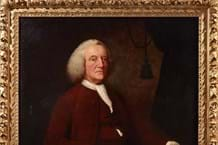Just months after the Artists' Rights Society called for the imposition of resale rights in the United States (see ATG's report here), the lawsuits allege that the New York auctioneers routinely violate the law by purposefully concealing the identities and residencies of sellers who live in California, thereby getting around paying artists or their estates a royalty.
The auction houses believe the act (that is not always enforced) is subject to serious legal challenges.
In a statement to the Wall Street Journal, Christie's said they "look forward to addressing these issues in court".
Under the California law – unique in the US but similar to the droit de suite laws in the UK – any person selling an artwork by an artist who is either alive or has been deceased for fewer than 20 years must give the artist or the artist's estate five per cent of the sale's proceeds.
The law applies to both works of art sold in California and those sold outside the state by a California resident. It applies only to fine art – defined here as "an original painting, sculpture, or drawing, or an original work of art in glass". Editioned photographs and prints are not included.
The New York painter Chuck Close, the Los Angeles artist Laddie John Dill and the estate of Los Angeles sculptor Robert Graham are the lead plaintiffs in the case. Their lawyer filed the pair of complaints on October 18, charging the auction houses with "failure to comply" with the law by not giving this royalty to the artists and by routinely going out of their way "to conceal the fact of a seller's California residency."
The case has wider implications and could affect how dealers in California run their businesses. Already Los Angeles artist Mark Grotjahn is embroiled in a case against the Californian collector Dean Valentine to recover a five per cent royalty for three resold works. A trial date has been set for March 6, 2012.
Valentine was an early collector of Grotjahn's abstract paintings whose works, sold on the primary market in 2005 for under $10,000, were commanding over $1m each three years later when Valentine chose to sell.
Valentine's lawyers have argued the law is poorly written and discriminatory, and interferes with the Copyright Act of 1976 – the same argument Christie's and Sotheby's are expected to use if the class action suits against them move forward.
Meanwhile, Britain's dealers and auctioneers face the rapidly approaching extension of the Artist's Resale Right levy beyond its current form (benefiting only living artists) to include artists' heirs or estates up to 70 years after their death. It comes into effect in January 2012.




